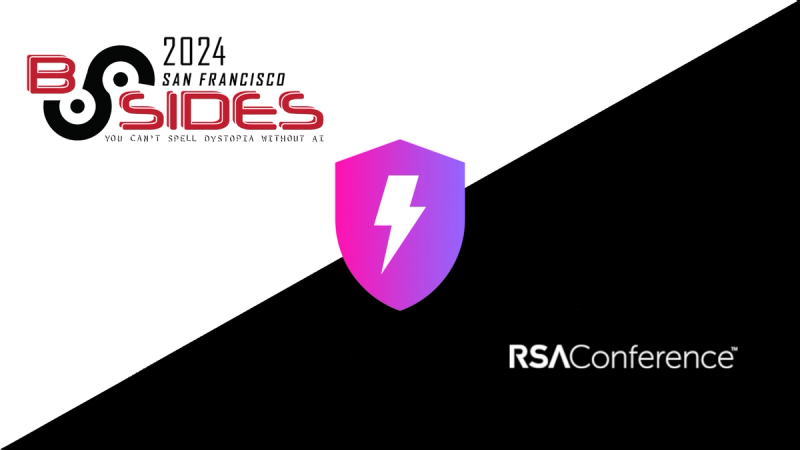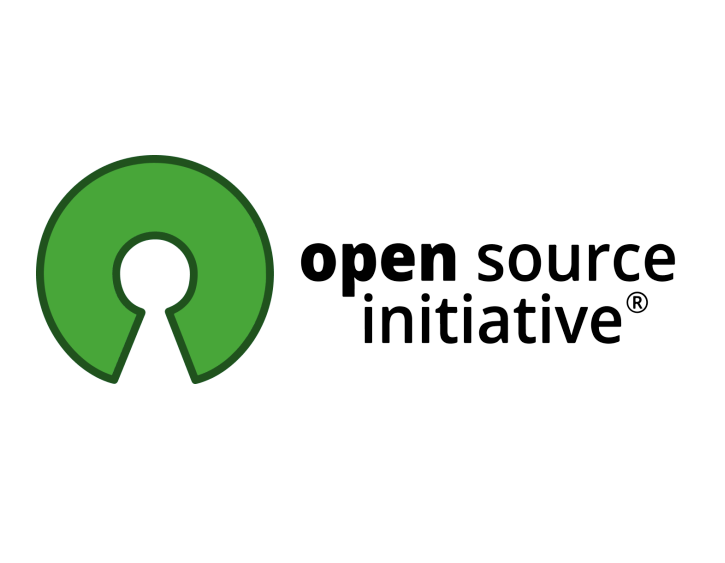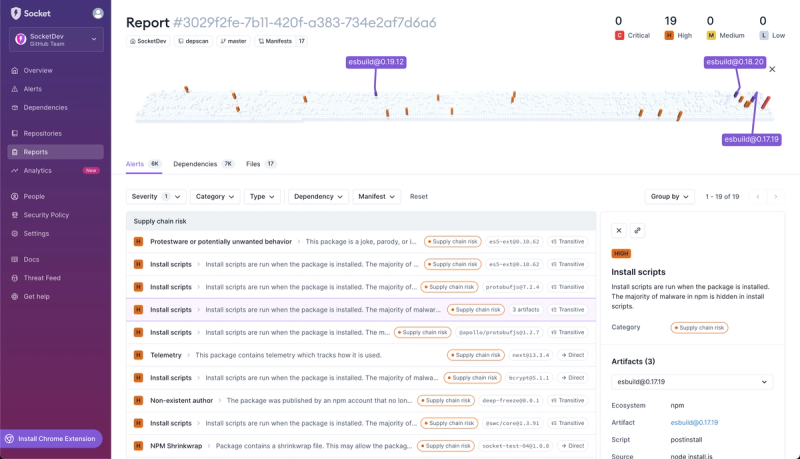
Company News
Connect with Socket at RSA and BSidesSF 2024
Come meet the Socket team at BSidesSF and RSA! We're sponsoring several fun networking events and we would love to see you there.
@dudadev/partner-api
Advanced tools
Weekly downloads
Readme
The @dudadev/partner-api library provides convenient access to Duda's public APIs from applications written in
server-side Javascript.
Node v12 or higher.
Install the package with:
npm install @dudadev/partner-api --save
# or
yarn add @dudadev/partner-api
The package needs to be configured with your API credentials:
const { Duda } = require('@dudadev/partner-api');
const duda = new Duda({
user: process.env.DUDA_API_USER,
pass: process.env.DUDA_API_PASS,
env: Duda.Environments.Direct,
});
duda.sites.get({ site_name: "a-site-name" })
.then(({ response: site }) => console.log(site))
.catch(({ response: error }) => console.error(error));
Or using ES modules and async/await:
// async / await
(async function () {
try {
const site = await duda.sites.get({ site_name: "a-site-name" });
console.log(site);
} catch ({
status,
response
}) {
console.log(status, response);
// handle error
}
})();
The package can be initialized with several options:
const duda = new Duda({
user: 'api-user',
pass: 'api-pass',
env: Duda.Environments.Sandbox, // also, .direct, .eu
});
Duda.Environments.EU: api.eu.duda.coDuda.Environments.Direct: api.duda.coDuda.Environments.Sandbox: api-sandbox.duda.coAutomatic network retries can be enabled with the maxNetworkRetries config option. This will retry requests n times with exponential backoff if they fail due to an intermittent network problem.
const duda = new Duda({
...,
maxNetworkRetries: 2
});
You can override the http.RequestOptions of any method on a per-request basis by passing a second object with custom options:
const { Duda } = require('@dudadev/partner-api');
const duda = new Duda({
user: process.env.DUDA_API_USER,
pass: process.env.DUDA_API_PASS,
env: Duda.Environments.Direct,
});
duda.sites.get({ site_name: 'a-site-name' }, {
host: 'api-special.duda.co',
auth: 'another-username:another-password',
headers: {
'X-CUSTOM-HEADER': 'a-value',
},
})
.then(({ response: site }) => console.log(site))
.catch(({ response: error }) => console.error(error))
interface Response {
status: number;
response: DudaResponse | DudaError;
}
You can debug requests made by the library by setting the DUDA_API_LOG_LEVEL environment variable to one of the
following levels:
The library will display logs that are >= DUDA_API_LOG_LEVEL. So, for example, setting the log level to warning (2)
would log all warnings (2) and errors (1).
The logger will attempt to redact any sensitive information before it logs using the following regular expressions:
/(user(name)?|pass(word)?|auth(orization)?)":"[^"]+/gi/(Bearer|Basic) [^"]+/gidebug$ DUDA_API_LOG_LEVEL=debug node index.js
[debug] 8ce2a72d-d6b6-4fe8-bf39-45ebe99f7233 no http agent defined: received=undefined
[info] 8ce2a72d-d6b6-4fe8-bf39-45ebe99f7233 new request: method=get endpoint=api-sandbox.duda.co/api/sites/multiscreen/374f37ea1eff44e7966b2c685ded251a/pages
[debug] 8ce2a72d-d6b6-4fe8-bf39-45ebe99f7233 full request details: req={"headers":{},"method":"get","path":"/api/sites/multiscreen/374f37ea1eff44e7966b2c685ded251a/pages","auth": [redacted],"host":"api-sandbox.duda.co"}
[debug] 8ce2a72d-d6b6-4fe8-bf39-45ebe99f7233 data received: raw={"results":[{"uuid":"683340afe033436caab26cf8a548b1dd","title":"Home","path":"home","seo":{"no_index":false}}]}
[debug] 8ce2a72d-d6b6-4fe8-bf39-45ebe99f7233 request ended: status=200 time=0.51s
If you're an app developer, you can access the App Store API under duda.appstore after calling new Duda(opts).
API Endpoints protected by an X-DUDA-ACCESS-TOKEN expect method calls to include a token property set to the
authorization_code without Bearer included.
duda.appstore.sites.get({
site_name: 'a-site-name',
token: 'authorization-code',
})
api_endpoint valuesYou can use the request override feature to set the host of a method call to the correct
api_endpoint for a particular site.
function getSite(site: string) {
const {
site_name,
auth,
api_endpoint
} = getInstallFromDB(site);
return duda.appstore.sites.get({
site_name: site_name,
token: auth.authorization_code,
}, {
host: api_endpoint,
})
}
getSite('a-site-name')
.then((site) => console.log(site))
.catch((err) => console.log(err.status, err.error))
Included under Duda.appstore is utils which contains useful methods for validating webhooks & signatures.
function validateWebook(req: YourRequestObject): boolean {
// conform request object
return duda.appstore.utils.validateWebook(process.env.SECRET_KEY, req.headers, req.body);
}
function validateSSO(req: YourRequestObject): boolean {
// conform request object
return duda.appstore.utils.validateSSOLink(process.env.SECRET_KEY, req.query);
}
FAQs
Provides convenient access to Duda's public APIs from applications written in server-side Javascript.
The npm package @dudadev/partner-api receives a total of 199 weekly downloads. As such, @dudadev/partner-api popularity was classified as not popular.
We found that @dudadev/partner-api demonstrated a healthy version release cadence and project activity because the last version was released less than a year ago. It has 12 open source maintainers collaborating on the project.
Did you know?

Socket for GitHub automatically highlights issues in each pull request and monitors the health of all your open source dependencies. Discover the contents of your packages and block harmful activity before you install or update your dependencies.

Company News
Come meet the Socket team at BSidesSF and RSA! We're sponsoring several fun networking events and we would love to see you there.

Security News
OSI is starting a conversation aimed at removing the excuse of the SaaS loophole for companies navigating licensing and the complexities of doing business with open source.

Product
We're introducing dependency visualization for reports - get a quick impression of the state of your dependencies without getting lost in the details.